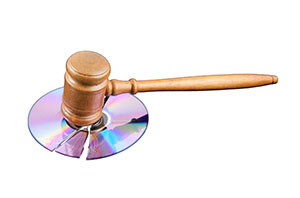
This week, Robert Plant and Jimmy Page are settling a court case surrounding the possible copyright infringement for Stairway To Heaven. The band faced similar allegations in the past few years and it has grown into controversy among die-hard fans.
This lawsuit divided public opinion between those who believe “The Biggest Band In The World” and those who hear identical similarities in 1960’s blues tunes. It has become a full-fleshed debate, but despite what the moral majority may think, how does this effect Zeppelin‘s legacy?
Most of the material that is being targeted for plagiarism just so happens to be the group’s most critically-acclaimed songs. The damage might not be so significant if there weren’t as many samples worth looking into. Across their first four albums, there is enough reasonable evidence that can debunk the band’s credibility…
…Or is there?
The influence is undeniable and in some cases it’s a little too obvious, however blues musicians have always been the blueprint for rock and roll’s early inspiration. Other acts such as Black Sabbath and Aerosmith have capitalized on this genre in order to expand it into a larger concept.
In this case, Zeppelin created a whole new dynamic from the traditional blues riffs with more depth and inventiveness. It goes beyond a simple duplication since Page and Plant put their own twist on each song that, otherwise, would’ve gone unheard.
But, that doesn’t excuse the seriousness of this court case. If there were musicians that died penniless while Zeppelin profited off the luxury of their songwriting, then they need to give credit where credit is due.
Although, this isn’t the first time a band got caught for using copyrighted blues material. The closest comparison would be the The Beach Boys incident where they had taken Chuck Berry‘s Sweet Little Sixteen and forgotten to credit him on their album. The management straightened everything as Brian Wilson and Co. no longer received royalties for Surfin’ U.S.A. In 1973, Chuck Berry sued John Lennon for using a few of his lyrics in Come Together.
Needless to say, Chuck Berry didn’t get the recognition he deserved and these are just two occasions that were big enough to be publicized. Imagine how many artists got away scot-free.
It’s obvious that the blues were a major influence on these performers and that’s why it’s hard to tell the difference between influence and plagiarism. An entire generation grew up on Willie Dixon and Muddy Waters while trying to apply their own rock tone into the mix. Everybody listened to everyone and not just the groups topping the charts. Bands like Vanilla Fudge and Mountain got their recognition through their underground following rather than mainstream success. Meanwhile, there were others such as Blue Cheer and Cactus who were established as the outsiders of rock, playing heavier and faster than their predecessors.
That being said, it’s expected to hear similar chord progressions rub off on the musicians of the late 60’s and early 70’s. That’s how music progresses and it can’t survive without an evolution made by a different peer group.
But that’s when some people get the idea to take a little too much from previous acts. Some surround themselves with so many varieties of music that it can be impossible to remember if they heard something from somewhere else or came up with it on their own. Others take advantage of the fact that not every album they own gets broadcasted publicly. You snip a piece of someone else’s work that no one heard of and call it your own: Easy money.
Right now, Zeppelin is caught in a thick web and their salvation is dependent on the judgement of the jury. However, the final decision will not be made by the judge, but rather the fans outside the court room. That’s who decides on Zeppelin‘s credibility above all else…and it has yet to be determined.

Leave a Reply